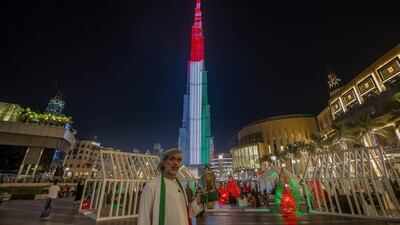The UAE is expected to be among the fastest-growing Arabian Gulf economies this year with a projected 2.6 per cent expansion on the back of continued infrastructure spending and economic stimulus, the World Bank said.
The gross domestic product of UAE, the Arab world's second-largest economy after Saudi Arabia, is projected to accelerate to 3 per cent in 2020 as the country "pushes infrastructure investments ahead of Dubai's Expo 2020", the Washington lender said in its bi-annual Gulf Economic Monitor report released on Wednesday. UAE output will speed up to 3.2 per cent by 2021 supported by the government's economic stimulus plans, hosting Expo 2020, and improved growth prospects in trading partners, it said.
Like the GCC peers, the UAE has been diversifying its economy with a view to reduce its reliance on hydrocarbons for revenue, to withstand downturns in the energy market such as the collapse of oil prices in 2014, which have since rebounded to about $75 per barrel.
The country has launched several initiatives at federal and emirate levels to boost non-oil GDP including easing visa restrictions, reducing corporate fees and enhancing the business-friendly environment that has attracted millions of expatriates. In 2018, Abu Dhabi announced a Dh50 billion three-year economic stimulus package to kick-start its economy, while earlier this year, Dubai rolled out a record budget ahead of Expo 2020.
The World Bank’s economic growth forecast is a slightly conservative compared to the International Monetary Fund and the Central Bank of the UAE. The lender projects UAE GDP to grow by 3.7 per cent during 2019-20, while the Central Bank estimates it to expand by 3.5 per cent this year, up from 2.8 per cent in 2018.
The World Bank estimates GCC economic output to accelerate to 2.1 per cent this year from 2 per cent in 2018, before expanding 3.2 per cent in 2020.
The GDP of Saudi Arabia, Opec’s top oil exporter, is projected to grow by 1.7 per cent in 2019, as higher government spending offsets the impact of oil production cuts implemented in the first half of 2019 by Opec and non-Opec oil-producing nations.
“It should then recover to over 3 per cent in 2020 as oil production cuts are reversed, and as large infrastructure projects generate positive spillovers to private sector growth,” the lender said.
Bahrain, the GCC's smallest Gulf economy, will experience a rise in growth to 2.2 per cent next year from 2 per cent in 2019.
“Growth will resume in the coming years as efficiency gains from reforms materialise,” the bank said.
Economies in Kuwait and Oman are projected to expand by 1.6 per cent and 1.2 per cent respectively this year.
In Oman, the World Bank expects a “one-off spike in growth to 6 per cent in 2020 as the government plans to significantly increase investment in the Khazzan gasfield”.
The Khazzan field is the largest tight gas development in the sultanate, which will supply a third of Oman's natural gas needs after the completion of the first phase of development.
“The potential boost from the diversification investment spending would continue supporting growth in 2021 and the medium term,” the bank said.
Despite the steady progress, major reforms to attract investors and boost competitiveness, the Gulf states need to continue on the path of fiscal consolidation, economic diversification and increasing private sector-led job creation, especially for women and young people, the World Bank said.
“Working closely with the GCC, we have seen strong political will from some countries to achieve their country vision plans with real, tangible outcomes on the ground,” said Issam Abousleiman, World Bank regional director for the GCC. “But economic transformation is a long-term endeavour, requiring steadfast, predictable implementation. While the road ahead is challenging, it is possible and we are committed to taking this journey together.”


